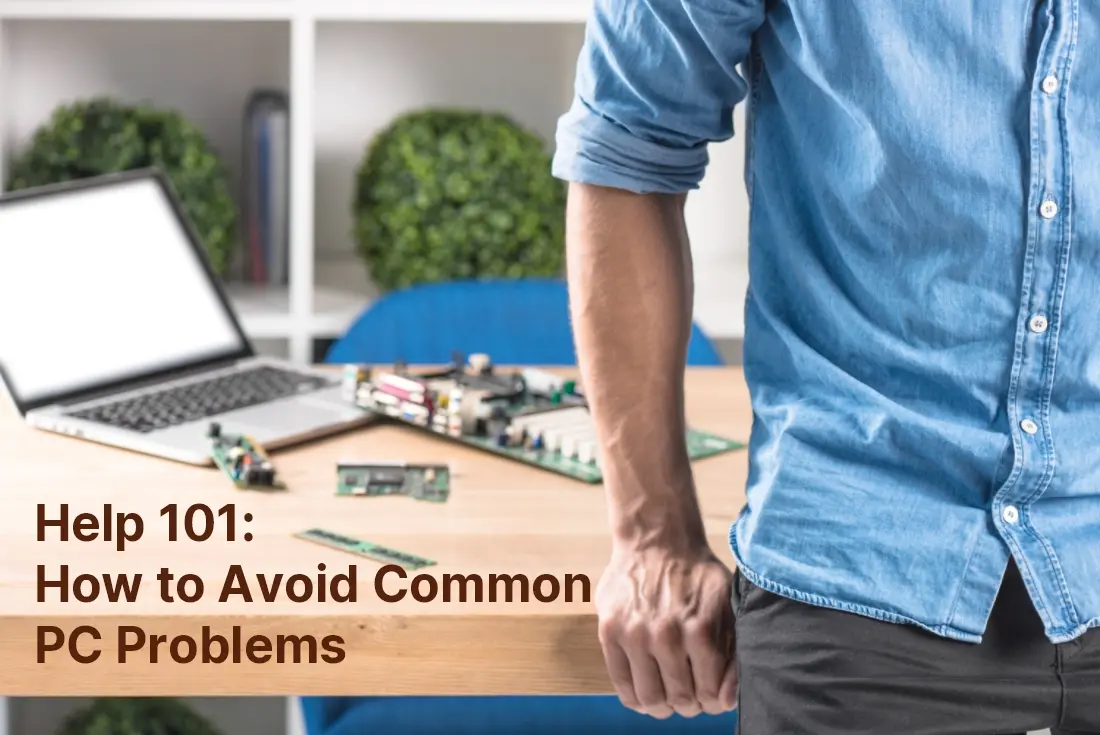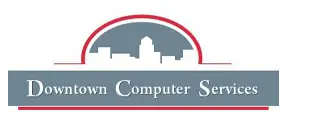
02 Jun PC Help 101: How to Avoid Common PC Problems and Keep Your Computer Running Like New
Welcome to PC Help 101, where we provide you with tips and tricks on how to avoid common PC problems and keep your computer running like new. As technology continues to advance, our reliance on computers has grown exponentially. From work to entertainment, computers play a crucial role in our daily lives. However, like any other machine, computers can encounter problems, from slow performance to viruses and malware. These issues can be frustrating, time-consuming, and costly to fix. That’s why it’s essential to understand how to maintain your computer properly and prevent potential concerns before they occur. This guide will provide you with practical advice on how to optimize your computer’s performance, protect it from viruses and malware, and troubleshoot common issues. Whether you’re a beginner or an experienced user, this guide will equip you with the knowledge you need to keep your computer running smoothly. So, let’s dive in and learn how to keep your PC in top shape!
Common PC problems and their causes
One of the most common PC problems is a slow computer. This can be caused by a variety of issues, including a lack of free space on the hard drive, outdated drivers, or too many programs running at once. Another issue is viruses and malware, which can cause data loss, identity theft, and other serious issues. These can be spread through email attachments, downloads, or infected websites. Other issues include hardware concerns such as overheating, power supply failure, or damaged components.
To avoid these difficulties, it’s important to understand their causes and take steps to prevent them. This includes keeping your computer clean and free of dust, updating your drivers and software regularly, and using antivirus and anti-malware software. It’s also important to be cautious when downloading or opening attachments, and to avoid visiting suspicious websites. Downtown Computer Services is ready to diagnose your computer at our repair shop free of charge and perform urgent computer repairs if necessary.
Tips for preventing PC problems
Preventing PC problems requires a proactive approach. Here are some tips to help you keep your computer running smoothly:
1. Keep your computer clean and dust-free. Dust can clog vents and fans, causing overheating and other issues. Use a soft, dry cloth to clean your computer regularly, and avoid using harsh chemicals or abrasive materials.
2. Use antivirus and anti-malware software. These programs can help protect your computer from viruses, malware, and other threats. Make sure to keep your software up to date and scan your computer regularly.
3. Update your software and drivers regularly. This can help improve performance, fix bugs, and patch security vulnerabilities. Check for updates for your operating system, antivirus software, and other programs you use regularly.
4. Be cautious when downloading or opening attachments. Only download files from trusted sources, and scan them for viruses and malware before opening. Avoid opening attachments from unknown senders or emails that look suspicious.
5. Use a surge protector to protect your computer from power surges. This can help prevent damage to your computer caused by power fluctuations or lightning strikes. By following these tips, you can help prevent common PC problems and keep your computer running smoothly.
Needs troubleshooting, your computer that suddenly stopped turning on?
Our computer repair technicians are ready to carry out free computer diagnostics and repair. Call (954) 524 9002 now.
Essential software for PC maintenance
There are several essential software programs that can help you maintain your computer’s performance and security. These include:
1. Antivirus software: This program can help protect your computer from viruses, malware, and other threats. Look for a reputable antivirus program and keep it up to date.
2. Anti-malware software: This program can help protect your computer from spyware, adware, and other types of malware. Look for a program that offers real-time protection and scanning.
3. Disk cleanup software: This program can help free up space on your hard drive by removing temporary files, old backups, and other unnecessary data.
4. Registry cleaner: This program can help clean up your computer’s registry, which can improve performance and fix errors.
5. Backup software: This program can help you create backups of your important files and data, which can be critical in case of a hardware failure or other problem.
By using these programs regularly, you can help maintain your computer’s performance and security.
Importance of regular updates and backups
Regular updates and backups are essential for maintaining your computer’s performance and security. Updates can provide bug fixes, security patches, and new features, while backups can help protect your data in case of a hardware failure, theft, or other concern.
To ensure that your computer is always up-to-date, make sure to install operating system updates, antivirus software updates, and other program updates as they become available. It’s also important to create regular backups of your important files and data. This can be done using backup software or by manually copying files to an external hard drive or cloud storage service.
By making updates and backups a regular part of your computer maintenance routine, you can help prevent data loss and other problems.
Troubleshooting common PC problems
Despite your best efforts, you may encounter PC problems from time to time. Here are some common issues and their solutions:
1. Slow computer: This can be caused by a lack of free space on the hard drive, outdated drivers, or too many programs running at once. To fix this, try freeing up space on your hard drive, updating your drivers, and closing unnecessary programs.
2. Computer won’t start: This can be caused by a variety of issues, including a dead battery, damaged power supply, or hardware failure. To troubleshoot this issue, try unplugging your computer and plugging it back in, or checking the power supply and battery.
3. Blue screen of death: This is a critical error that can be caused by hardware or software issues. To fix this, try restarting your computer, updating your drivers, or running a virus scan.
4. Virus or malware infection: This can cause data loss, identity theft, and other serious problems. To fix this, run a full virus and malware scan, and use an antivirus program to remove any infections.
By following these troubleshooting steps, you can often fix common PC problems yourself. Downtown Computer Services is ready to diagnose your computer at our repair shop free of charge and perform urgent computer repairs if necessary.
DIY solutions for PC repair
While some PC problems may require professional help, there are many issues that you can fix yourself. Here are some DIY solutions for common PC problems:
1. Reinstalling your operating system: This can help fix software issues and restore your computer to its original state. Make sure to back up your data before reinstalling your operating system.
2. Replacing a hard drive: If your hard drive fails, you may need to replace it. This can be done by purchasing a new hard drive and installing it yourself, or by taking your computer to a professional.
3. Cleaning your computer: If your computer is running slow or overheating, you may need to clean it. This can be done by using a soft, dry cloth to wipe down your computer’s case and components.
4. Upgrading your hardware: If your computer is outdated or slow, you may be able to upgrade your hardware to improve performance. This can be done by adding more RAM, upgrading your graphics card, or installing a faster processor.
By using these DIY solutions, you can save money and fix common PC problems yourself.
When to seek professional PC help
While many PC problems can be resolved yourself, there are times when you may need professional help. Here are some signs that you should seek professional PC help:
1. Your computer won’t turn on: If your computer won’t start, you may need to take it to a professional for repair.
2. Your computer is infected with a virus or malware: If you can’t remove a virus or malware infection yourself, you may need professional help.
3. Your computer is making strange noises: If your computer is making strange noises, such as grinding or clicking, it may indicate a hardware problem that requires professional help.
4. Your computer is overheating: If your computer is overheating, it may require professional help to fix.
By seeking professional help when necessary, you can ensure that your computer is properly repaired and maintained.
Recommended tools and resources for PC maintenance
There are several tools and resources that can help you maintain your PC performance and security. Here are some recommended options:
1. CCleaner: This is a free program that can help you clean up your computer’s registry and free up space on your hard drive.
2. Malwarebytes: This is a free anti-malware program that can help protect your computer from spyware, adware, and other types of malware.
3. Windows Defender: This is a built-in antivirus program for Windows that can help protect your computer from viruses and malware.
4. PCMag: This is a website that provides reviews and recommendations for antivirus software, backup software, and other PC tools.
By using these tools and resources, you can help maintain your PC performance and security.
Conclusion
In conclusion, maintaining your PC performance and security requires a proactive approach. By following the tips and advice in this guide, you can help prevent common PC problems and keep your computer running smoothly. Remember to keep your computer clean and dust-free, use antivirus and anti-malware software, update your software and drivers regularly, and create regular backups of your important files and data. If you encounter PC issues, try troubleshooting them yourself using the DIY solutions outlined in this guide. And if you need professional help, don’t hesitate to seek it out. By taking care of your PC, you can ensure that it serves you well for years to come. Our computer repair technicians are ready to carry out free computer diagnostics. Call (954) 524 9002 now.
Check out other relevant news
- How Easy-to-Use Hacking Tools Are Fueling Cybercrime
- Cryptocurrency Security for Small Businesses: Protecting Your Wallet
- The Infostealer Epidemic: Protecting Your Business from the Latest Wave of Cyberattacks
- The Identity Crisis: How Compromised Credentials Can Cripple Your Business
- Beyond the Brick and Mortar: Building Your Online Storefront with Digital Marketing
